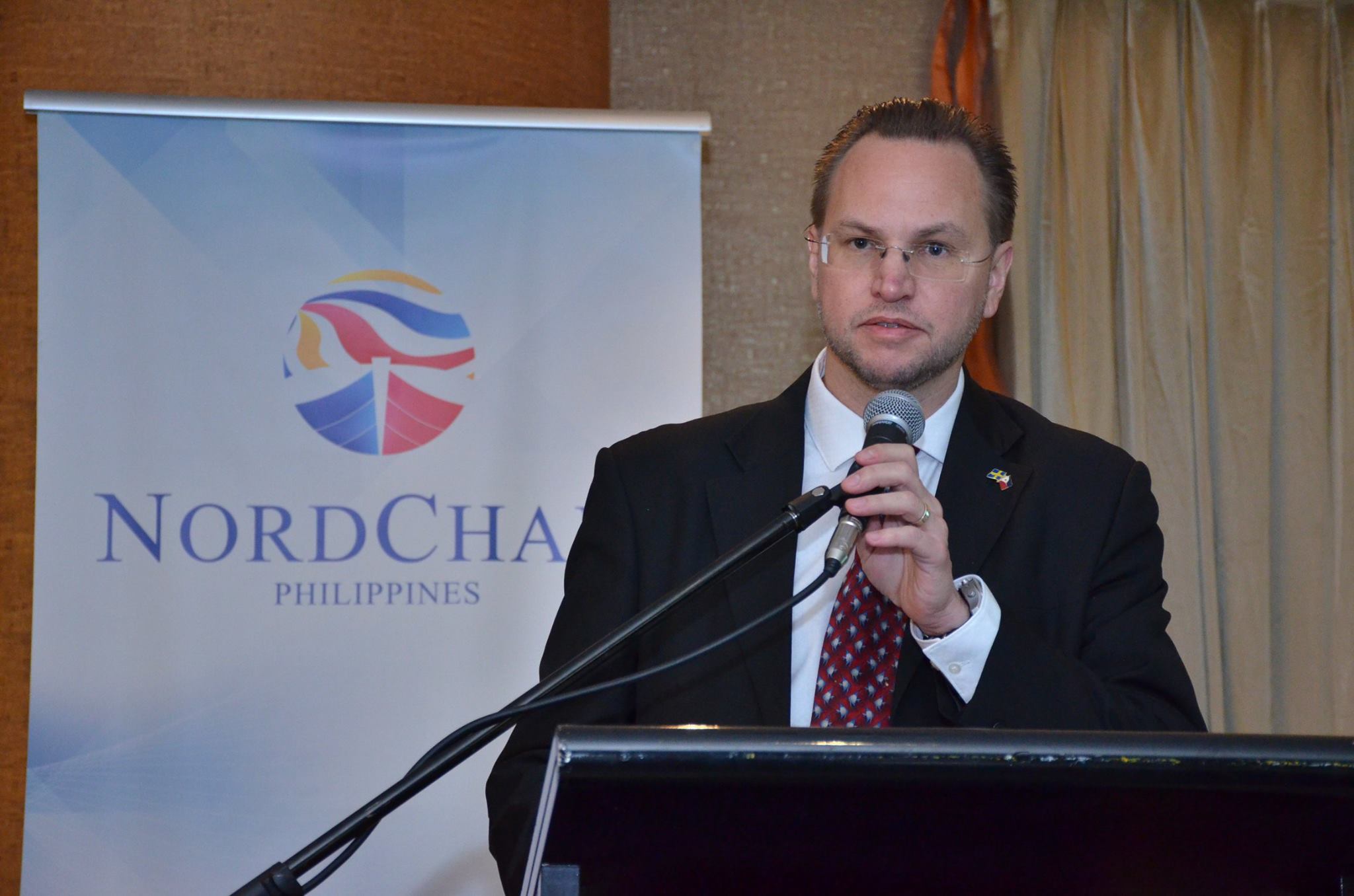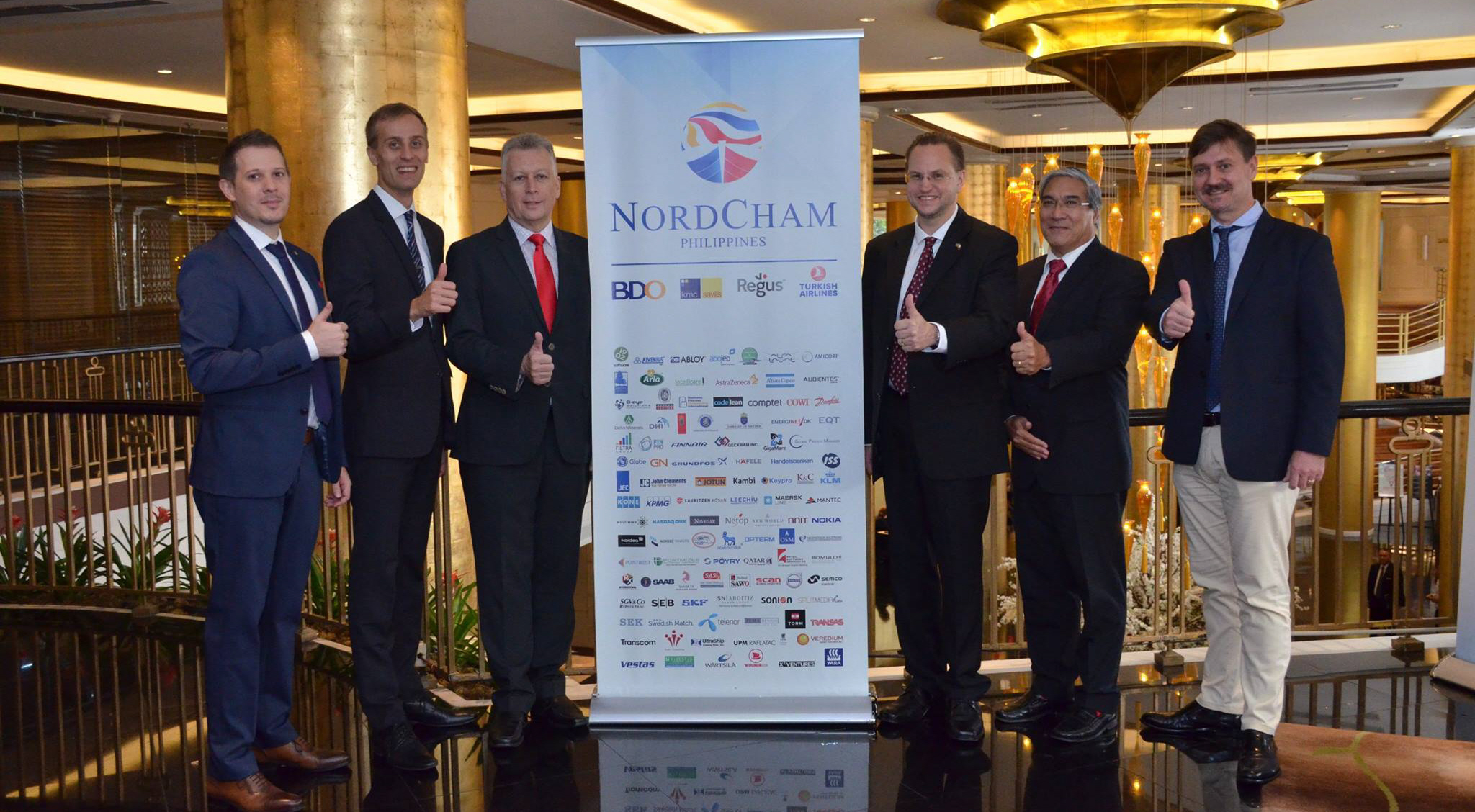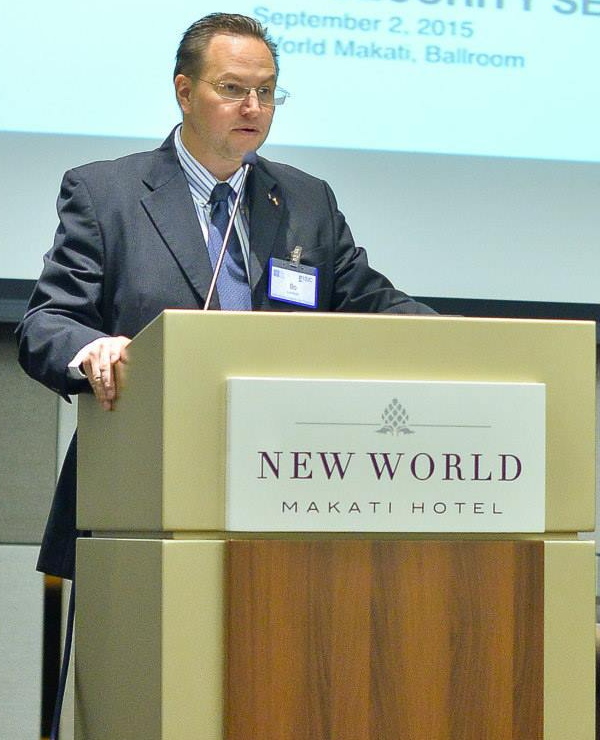The NordCham Philippines President himself possesses in-depth knowledge of setting up, running and growing a business out of the Philippines. Bo Lundqvist started Retail Associates 12 years ago, after a long background in doing implementations of ERP (Enterprise Resource Planning) systems.

“I felt at a point that it was time to start my own business – which I did. We deal specifically with offering solutions for retailers, typically larger businesses with 20-100 stores or more; supermarkets and specialty retailers; e.g. fine dining restaurants, coffee bars, mini marts etc. We are specialized in any business that has stores and POS [Point of Sale], and nowadays that also require web store/omni-channel,” Bo explains the focus of his business.
Based on the Microsoft Dynamics business application framework, Retail Associates offer a solution called LS Retail NAV. “LS Retail NAV allows us to deliver an ERP solution that also incorporates processes at stores and on POS. LS Retail runs some of the largest companies in the world, like IKEA.”
“We help retailers identify their business processes and to improve and streamline those. We help them implement a system that automates all processes, be it accounting, supply chain, warehousing, sometimes manufacturing, store processes etc.; all in a single solution.”

The typical customer is semi-automated, with comprehensive logistics that needs to be managed with multiple stores “Retailers grow organically so they typically have multiple tools, one of them being Excel that they try to integrate. When they have grown to a certain size, and it all becomes too complicated, they look for people or solutions like us that can help them putting it all together.”
“Our specialization is quite unique; so we get invited to provide consulting services to larger projects also in the region.” While the Philippines is the main market for Bo’s company it also gets involved regionally. Recently, it deploys retail solutions in Thailand, Cambodia, Laos and Myanmar. Through its partnership with Danish firm Pipol, Retail Associates also help global business deploy the solution in the Philippines.
 Unsurprisingly for a Swedish-managed business it does not compete on price but are successful based on other values. “We try to operate by European standards, in terms of how we deliver, focusing solely on quality and detail, and from that perspective there is not much local competition.”
Unsurprisingly for a Swedish-managed business it does not compete on price but are successful based on other values. “We try to operate by European standards, in terms of how we deliver, focusing solely on quality and detail, and from that perspective there is not much local competition.”
Retail Associates doubled their business in 2017, which points to strong growth within the retail sector.
“Philippines has had a booming economy for quite some time now and it still continues to grow. Retail is especially successful and expanding. We have strong population growth and in particular a growing middle class which fuels the retail sector. Our customers are setting up new stores as fast as they can, launching new formats and entering new territories. And we also see new retailers, foreign brands, entering. So we can see quite a lot of interest in our product and our services from the kind of customers we typically deal with.”
Most of the larger retailers operate as chains, typically with multiple brands and based in the many shopping malls that are typical for the Philippines. The trend now is for these chains to push presence from the larger cities to the provincial cities, says Bo.
Looking at changes and improvement in the country, there has been a significant breakthrough for foreign investors. “A great Scandinavian example is Swedish H&M, which was the first 100% foreign owned retailer entering the country. That has not been possible previously, but is now due to liberalization in the legislation”.
“We are hoping there will be further easing in terms of foreign ownership,” he adds.
“One of the changes the Philippine government is planning will lower the monetary threshold for retail and that will make it more attractive for foreigners to come in here and compete on equal terms with local retailing.”
The foreign paid up capital limit will be lowered from the current $2.5 million to $200,000.
Many more changes in the legislation would enable further growth, according to Bo. “Some of the laws here are counter-productive, regarding foreign ownership and around taxation and imports etc. There are lots of improvements that need to be done to create a truly level playing field.”
“The just launched tax reform is another measure that businesses believe will spur growth, and maybe make it more attractive to do business.”
Tourism has a huge growth potential in the Philippines, but would require lots of infrastructure investment in transportation and lodging to cope with higher visitor numbers, believes the NordCham President.
And in those investments also lies business opportunities for foreign companies, with lots of funding expected to come from either foreign investment or foreign direct investment. “The Build! Build! Build! Program of the current Administration is supposed to become the catalyst for growth in this sector, both for foreign and local business. This is something of big interest from players in Europe which see that European technology, knowhow and products could form a big part of these projects.”
When this will really take off is however yet to be seen. Though, the urgency must be there loud and clear for the Philippine government: “We are a lot behind our Asian neighbours so there’s a lot of work to be done in a very short timeframe,” comments Bo.

One sector where the country really thrives is within the business process outsourcing (BPO) employing 1.3 million locals.
Filipinos easily understand and learn new technologies in addition to their competitive English skills.
“In my experience, they tend to be very positive towards learning and improving. Filipinos top the service sectors in most places in the world, because of exactly that. And this is of course why the IT-BPO is our poster boy,” says the Swede.
“Provided the government continue to support that type of business I don’t see that 1.3 million people could not double within a few years’ time, because there seems to be an endless number of possibilities in terms of outsourcing processes and tasks to the Philippines.”
The population is young and the education is good, thinks Bo. “There are lots of well- educated, well-spoken Filipinos that are churned out from the universities every year. Hence you have quite a lot of Nordic businesses that even deal with the universities directly to grab the top talent when they graduate. If you look at finding talent, then this is a good place!”




Thank you for writing this quality informational content. This information about IT solutions increased my knowledge. Thankyou